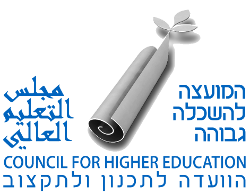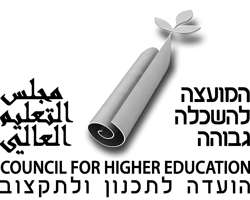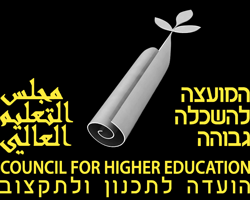הסכם עם דרום קוריאה לקידום שיתופי פעולה אקדמיים
בישיבת ות"ת שהתקיימה ב- 10.7.19 דנה ות"ת במזכר ההבנות עם דרום קוריאה לעידוד שיתופי פעולה אקדמיים, במסגרת המדיניות של מל"ג/ות"ת לקידום בינלאומיות במערכת ההשכלה הגבוהה, ובהתבסס על הסכם המסגרת שנחתם בין מדינת ישראל לבין דרום קוריאה ב- 15 לנובמבר 1994 ולקראת ביקור כבוד נשיא המדינה מר ראובן ריבלין בדרום קוריאה ביחד עם משלחת מהאקדמיה והתעשייה בראשות פרופ' יפה זילברשץ' , שבמסגרתו חיזוק שיתופי פעולה אקדמיים בין ישראל לדרום קוריאה יוגדר כיעד מרכזי.
ות"ת מחליטה לאשר את מזכר ההבנות עם משרד החינוך הדרום קוריאני לעידוד שיתופי פעולה אקדמיים בין שתי המדינות, בהתאם לעקרונות המפורטים להלן:
- מזכר ההבנות הינו הסכם כללי שבמסגרתו שני הצדדים יעודדו שיתופי פעולה בין מוסדות להשכלה גבוהה, ניידות סטודנטים וחוקרים ושיתוף מידע בין שתי המדינות.
- מזכר ההבנות אינו מחייב השתתפות תקציבית כלשהי.
- עותק מזכר ההבנות מצ"ב כנספח ג' ומהווה חלק בלתי נפרד מהחלטה זו.
2 ראה בסוף הפרוטוקול נספח ג' תוספת להחלטה.
נספח ג'
ng on Cooperation
In the Field of Higher Education
The Ministry of Education of the Republic of Korea and the Council for Higher Education of Israel (thereafter: the Sides); Based on the Cultural Agreement between the Government of the Republic of Korea and the Government of the State of Israel signed in Seoul on 15th December 1994;
Considering their mutual interest in promoting cooperation in the field of higher education;
Desiring to expand and to intensify cooperation in the field of higher education;
Convinced of the necessity of a lasting and effective cooperation in the interest of both countries;
Pursuant to the prevailing laws and regulations, as well as the procedures and policies concerning higher education cooperation in their respective countries;
Have reached the following understanding;
Paragraph 1
Objective
1. This MOU aims to develop cooperation in the fields of higher education on the basis of the principles of equality, reciprocity and mutual benefits, and to promote relations and mutual understanding between the Sides.
2. This MOU does not create legally binding rights or obligations upon the Sides and does not constitute a treaty under international law.
Paragraph 2
Scores of Cooperation
The Sides will endeavor to take necessary steps to encourage and promote cooperation in the following areas:
a. Promotion of direct cooperation between higher educational institutions of the two countries in the fields of mutual benefit of both Sides, especially with the conclusion of cooperation arrangements between these institutions;
b. Encouragement of exchange of high officials, researchers, academic staff and promoting the mobility of students and experts;
c. Exchange of information and publication on higher education and relevant issues
Paragraph 3
Implementation
1. Details of the substance, scope and implementation of cooperation and/or programs carried out under this MOU may be set out in more specific arrangements concluded between selected institutions in the two countries.
2. The implementation of the activities and/or programs under this MOU is subject to the availability of human, material and financial resources of the Sides.
3. Unless otherwise provided in an implementing arrangement, each Side will bear its own costs arising from cooperation under this MOU.
Paragraph 4
Amendment
This MOU may be reviewed and amended at any time, by mutual written consent of the Sides. Such amendment will come into effect on such date as may be determined by the Sides and will form an integral part of this MOU.
Paragraph 5
Entry into Force and Termination
1. This MOU will come into effect on the date of its signing and remain in effect for a period of three years unless either party notifies in writing its intention to terminate this MOU 6 months in advance.
2. The termination of this MOU may not affect the validity and duration of any arrangements, programs, activities or projects made under this MOU until the completion of such arrangements, programs, activities or projects, unless the Sides decide otherwise.
Signed in duplicate at [ ] on [ ] in the Korean, English and [ ], all texts being equally valid. In case of any divergence of interpretation, the English text will prevail.



